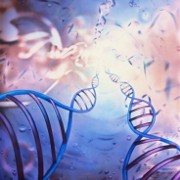Symptoms
A girl with Rett syndrome will start developing normally. She will smile, move, and pick items up with her fingers. But by 18 months of age, the developmental process seems to stop or reverse itself. The age of onset and the severity of symptoms can vary. There are four stages. Symptoms include:
Stage I: Early Onset Stage
- Age: 6 to 18 months
- Duration: months
Symptoms may include:
- Less eye contact with parents
- Less interest in toys and play
- Handwringing
- Slow head growth
- Calm, quiet baby
Stage II: Rapid Destructive Stage
- Age: 1 to 4 years
- Duration: weeks to months
Symptoms may include:
- Small head
- Mental retardation
- Loss of muscle tone
- Inability to purposely use hands
- Loss of (previous) ability to talk
- Repeatedly moving hands to mouth
- Other hand movements, such as clapping, tapping, or random touching
- Hand movements stop during sleep
- Holding breath, gaps in breathing, taking rapid breaths
- Irregular breathing stops during sleep
- Teeth grinding
- Laughing or screaming spells
- Decreased social interactions
- Irritability
- Trouble sleeping
- Tremors
- Cold feet
- Trouble crawling or walking
Stage III: Plateau Stage
- Age: preschool through school years
- Duration: years
Symptoms may include:
- Difficulty controlling movement
- Seizures
- Less irritability and crying
- Communication may improve
Stage IV: Late Motor Deterioration Stage
- Age: when stage III ceases, can be anywhere from age 5 to 25
- Duration: up to decades
Symptoms may include:
- Decreased ability to walk
- Muscle weakness or wasting
- Stiffness of muscles
- Spastic movements
- Scoliosis (curvature of the spine)
- Breathing trouble and seizures often decrease with age
- Puberty usually begins at the expected age
Scoliosis

Diagnosis
The doctor will:
- Ask about your child’s symptoms and medical history
- Do a physical and neurological exam
- Exclude other disorders, such as autism
- Do genetic testing can often confirm the diagnosis
Ninety-five percent of girls with Rett Syndrome and 50% of those with the atypical form have the MECP2 mutation. But, not everyone with this mutation will have Rett syndrome. Some females may be normal or have only mild symptoms. But, these women can pass the gene to their daughters. The daughters may then be more severely affected.
Some of the motor functions of Rett syndrome are similar to those of autism. Children with autism, who are more often boys, do not maintain person-to-person contact. Most girls with Rett syndrome, though, prefer human contact to focusing on inanimate objects. These differences may give the first clue in diagnosing Rett syndrome.
Aside from genetic testing, the diagnosis is confirmed by comparing the physical and developmental findings with those typically found in Rett syndrome.
Tests may include:
- Blood test—to check for genetic mutation (MECP2)
- Electroencephalogram (EEG)—a test that records the electrical activity of the brain
- Video-EEG—a test that combines EEG with a video to see if some of the child's movements are caused by seizures
Please be aware that this information is provided to supplement the care provided by your physician. It is neither intended nor implied to be a substitute for professional medical advice. CALL YOUR HEALTHCARE PROVIDER IMMEDIATELY IF YOU THINK YOU MAY HAVE A MEDICAL EMERGENCY. Always seek the advice of your physician or other qualified health provider prior to starting any new treatment or with any questions you may have regarding a medical condition. Copyright © 2024 EBSCO Publishing All rights reserved.
 Rett Syndrome: Research Increases Information About This Disorder on the Autism Spectrum
Rett Syndrome: Research Increases Information About This Disorder on the Autism Spectrum
